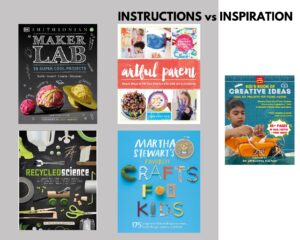Hello, fellow parents. I am Capt. Venkat, father of Laksh, who is currently studying in Grade-2 of a CBSE board private school. Today, I want to share some insights and experiences on why it is crucial for us, as parents, to actively partner in our child’s education rather than leaving it entirely to schools or coaching classes.
What Does It Mean to Be an Educational Partner?
Being an educational partner means actively engaging in your child’s learning process. It involves understanding their strengths, weaknesses, interests, and unique skills. It’s about being present, providing support, and creating an environment where your child can thrive both academically and personally.
Why Should Parents Partner in Their Child’s Education?
- Unique Understanding of Your Child: Every child is different, with unique talents and learning styles. Schools, whether government or private, CBSE or IB, cannot tailor their teaching methods to each child individually. As parents, we have the unique ability to recognize and nurture these individual skills and interests.
- Holistic Development: Schools primarily focus on academic education, but a child’s learning journey is much broader. It includes moral values, life skills, creativity, and emotional intelligence. As parents, we can fill the gaps left by formal education, ensuring a well-rounded development.
- Building Confidence and Motivation: When children see their parents involved in their education, it boosts their confidence and motivation. They feel supported and valued, which can significantly enhance their academic performance and overall well-being.

How Can Parents Partner in Their Child’s Education?
- Be Involved: Attend parent-teacher meetings, school events, and stay updated with your child’s progress. Understand the curriculum and what your child is learning.
- Create a Learning Environment at Home: Set up a quiet, organized space for homework and study. Encourage reading and curiosity by providing books and educational resources that align with their interests.
- Balance Academic and Extracurricular Activities: Encourage your child to pursue hobbies and activities outside of school. Whether it’s sports, music, art, or any other interest, these activities are crucial for their overall development.
- Communicate Regularly: Talk to your child about their day, their challenges, and their achievements. Listen to their concerns and provide guidance and encouragement.
- Supplement School Learning: Use educational tools and resources to supplement what your child is learning at school. This could include educational apps, online courses, or even fun, educational outings.
- Explore Digital Tools: Let kids explore all digital tools like Canva, Blender, Scratch, speech-to-notes, and AI chat tools. Give them access to cameras and gadgets, allowing them to create things and express themselves.
- Give Them Space and Freedom: Keep your patience and don’t dump every possible course on them. Give them the free space to think, explore, and develop their creativity. Encourage them to solve problems, include them in your decisions, and ask for their opinions.
- Real-Life Experiences: Take them to places where they can experience real life, such as museums, science centers, or nature parks. These experiences can greatly enhance their understanding of the world around them.
My Journey with Laksh
As a parent, my approach with Laksh is that while he studies at school, the real learning happens at home. I am not overly concerned about what happens at his school as long as he is attending and participating. At home, we engage in a lot of DIY activities that spark his creativity and practical skills. We build educational courses together, work on practical business plans, and explore photography, allowing him to express his ideas and learn by doing.
We explore various digital tools such as Canva for designing, and even delve into programming with tools like Scratch. This hands-on approach helps Laksh understand concepts better and develop a wide range of skills that go beyond the traditional school curriculum.
Additionally, we discuss and solve problems together, and I often include him in my decisions, asking for his opinions and encouraging him to think critically. This involvement not only strengthens our bond but also helps him gain confidence in his abilities.

A Caution to Overly Dependent Parents
Many parents place their complete trust in schools or coaching classes, assuming that they will take care of all aspects of their child’s education. While schools play a significant role, they cannot cater to the unique needs of each child. Over-reliance on external institutions can lead to gaps in your child’s education and development.
As parents, it is our responsibility to bridge these gaps and ensure our children receive a balanced and comprehensive education. By partnering in their education, we can help them develop their unique skills and prepare them for future challenges.
In conclusion, being a partner in your child’s education is not just about academic support; it’s about being actively involved in their overall development. Let’s take this responsibility seriously and work together to nurture our children’s potential.
Thank you for joining me on this journey. Let’s empower our children by being active, engaged, and supportive Powerparents.
How do you partner with your child? Let us know in comments.





